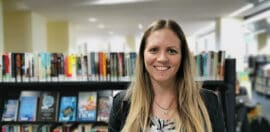Late Paralympics pioneer honoured with sports award

21 December 2022 at 5:20 pm
The Paraplegic Benefit Fund, founded by Sir George Bedbrook, provides paid employment opportunities for advocates with disability as well as disability cover for people who sustain spinal cord injuries.
A pioneer of the Australian Paralympic movement has been inducted into the Sport Australia Hall of Fame.
Sir George Bedbrook OBE was honoured for a significant and lasting contribution to the nation’s Paralympic movement.
An orthopaedic surgeon and rehabilitation specialist, Bedbrook, who died in 1991, was an advocate for those with spinal cord injuries.
During his four-decade career, Bedbrook championed the importance of combining rehabilitation with a competitive edge to assist patients both physically and psychologically, helping to establish the Australian Paralympic movement as a result.
One of his greatest legacies is the establishment of the Paraplegic Benefit Fund (PBF) in 1984. PBF was founded after Bedbrook realised the financial, as well as physical and psychological impacts of sustaining a spinal cord injury; he found that 70 per cent of patients were not eligible for any insurance or compensation payment following their spinal cord injury, with many being institutionalised after discharge from hospital.
The membership-based not for profit now has 50,000 members and provides disability cover, injury prevention education and support services in every state and territory.
The organisation pays out a $250,000 member benefit payment as quickly as possible after injury diagnosis to help cover the significant, immediate costs incurred including living, medical and rehabilitation expenses and modifications to housing and transportation.
According to PBF, around one person sustains a permanent, traumatic spinal cord injury every day in Australia, and most people are unaware of the financial cost involved in adaptation and rehabilitation, rendering financial assistance vitally important.
Using education to employ and empower
Jodie Nikolic was instantly paralysed when she was hit by a car at the age of 44.
Her life changed completely, and she told Pro Bono News it took her around two to five years “to get my head wrapped around my new life, to learn to be functional and regain my independence and find basically the will to live and a purpose again”.
“At first it feels like your life is over. It really does. Everything is taken away: freedom, independence, the ability to do all the things that you used to do. I had to learn to redefine myself, and just find a new me.”
PBF played a role in reestablishing her purpose.
Nikolic now uses her experience to educate others about safety. She started a role as an injury prevention presenter in PBF’s road program, talking to high school students about how safe driving practices can prevent accidents that cause spinal cord injuries.
PBF has other programs that visit aged care homes and workplaces, or that focus on injuries sustained through activities like swimming. In each area, ‘wheelies’, as they’re known within PBF, share their lived experience of injury and disability to hopefully inspire the audience to avoid dangerous behaviours.
Nikolic said it is empowering to share her story with others.
“At first it was very difficult,” she said.
“To have to verbalise that in the initial days was quite hard, and really cathartic also. But now when we tell our stories and you see [the students’] faces, the audience is so engaged and it really makes them think, I hope. And my goal is, if by listening to my story, even one person just thinks before they do and makes good choices travelling on the road or around their safety in general, then my job is done and that is empowering in itself.”
Besides offering her an employment opportunity, Nikolic said PBF was a flexible workplace that understands the impacts of her disability and allows her to adjust as necessary.
She believes that the education programs that PBF provides are essential to challenge ableist commentary about disability, and to help people understand what it’s like to live with a disability.
PBF Australia director Simon Bedbrook — grandson of Sir George Bedbrook — said enabling people like Nikolic to tell their stories had been the original program of the fund, providing paid employment opportunities for people who might face barriers to employment elsewhere.
PBF is now the largest single employer of people with permanent spinal cord injuries in Australia.
A legacy of determination
Bedbrook is carrying on a family legacy; his father and uncle followed his grandfather into PBF.
He describes Sir George Bedbrook as “an incredible person”.
“As a young kid, I can remember going around the wards with him and going to wheelchair basketball and those sorts of things,” Bedbrook recalled.
“He was so determined to do everything for patients. One of the great Sir George Bedbrook stories was that he was never afraid to go to the top if there was an issue. And when I say the top, I mean the very top.”
On one trip with the Paralympians to Mumbai, Sir George took his complaint to the Prime Minister of India after airport staff asked the disabled athletes to wait on the tarmac in oppressing heat.
“Within about five minutes they were moved straight off the tarmac back into the plane. So that was the sort of person he was,” Bedbrook laughed.

The 1964 Paralympics team addressed by Sir George Bedbrook.
Bedbrook added that it’s somewhat ironic for his grandfather to be admitted to the Sport Australia Hall of Fame, given he himself was not very good at sport.
“But he saw sport for para and quadriplegics as a really important part of their rehabilitation and getting them back into the world,” Bedbrook explained.
This belief led to the elder Bedbrook’s role in establishing Australia’s Paralympics team. In the 1950s, he designed a specific hospital ward in Perth to care for people with spinal cord injuries. Each room had a view outside, and most could see the basketball court and other patients playing games.
Sir George hoped that would motivate his patients. Later, he took a small team of seven athletes to the Stoke-Mandeville Games for the Paralysed — the precursor to today’s Paralympics.
Sir George was then instrumental in the creation of the First Commonwealth Paraplegic Games in 1962.
Bedbrook said the induction into the Hall of Fame is “a huge honour and recognition” of his grandfather’s work.
“It’s pretty amazing what he did. We need more people like him.”
Bedbrook will accept the award on behalf of his grandfather at a reception in Perth on 21 December.







